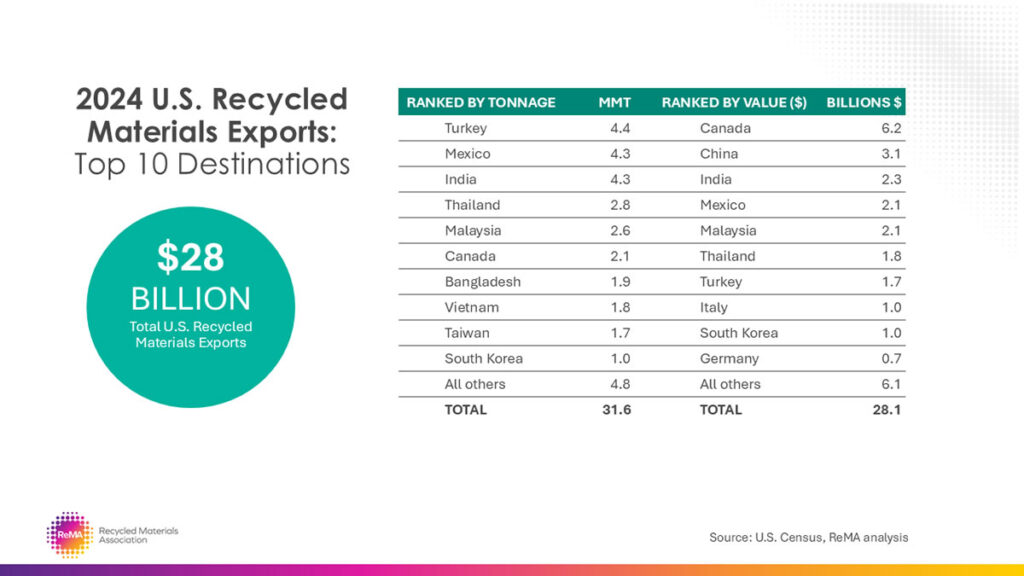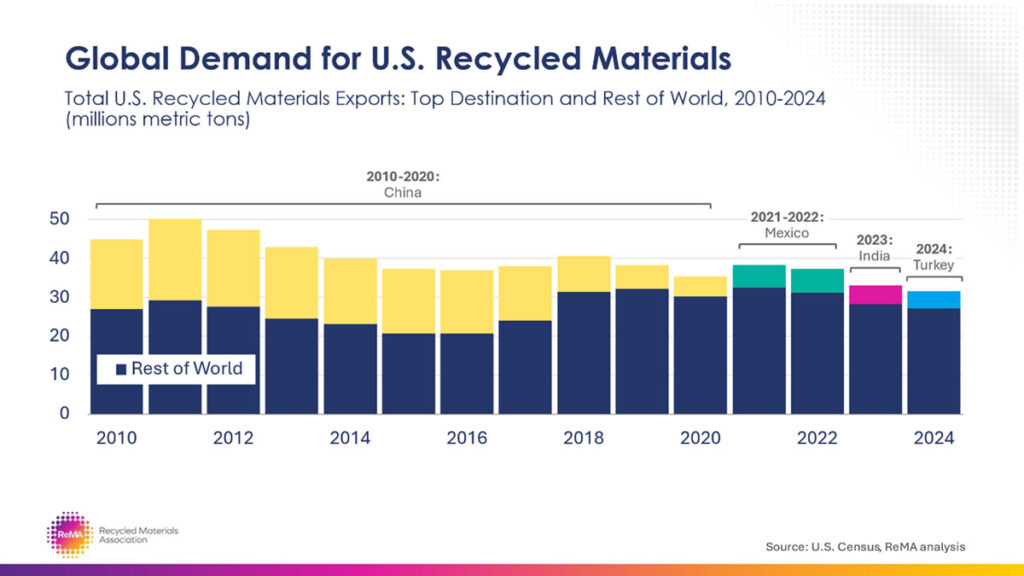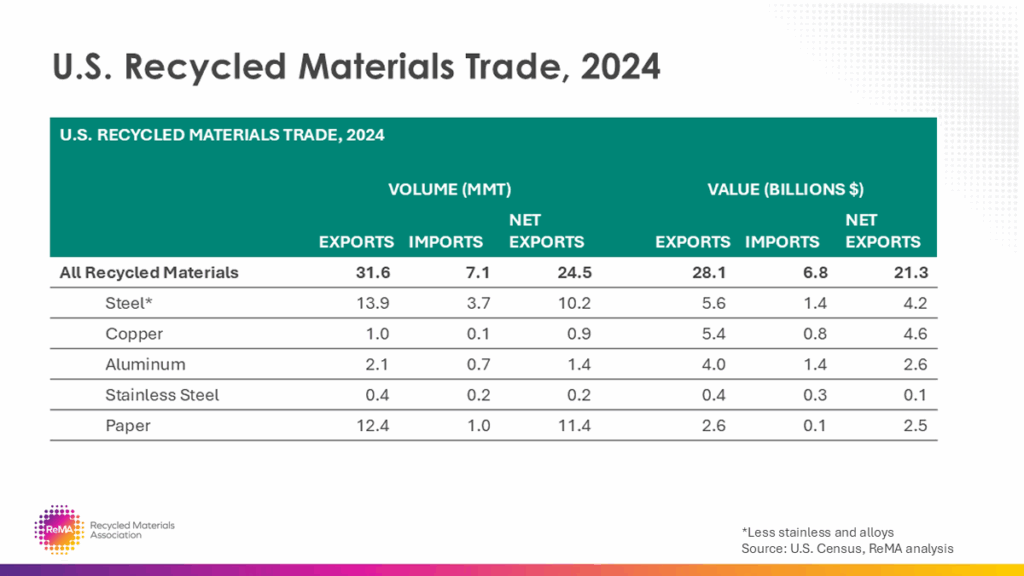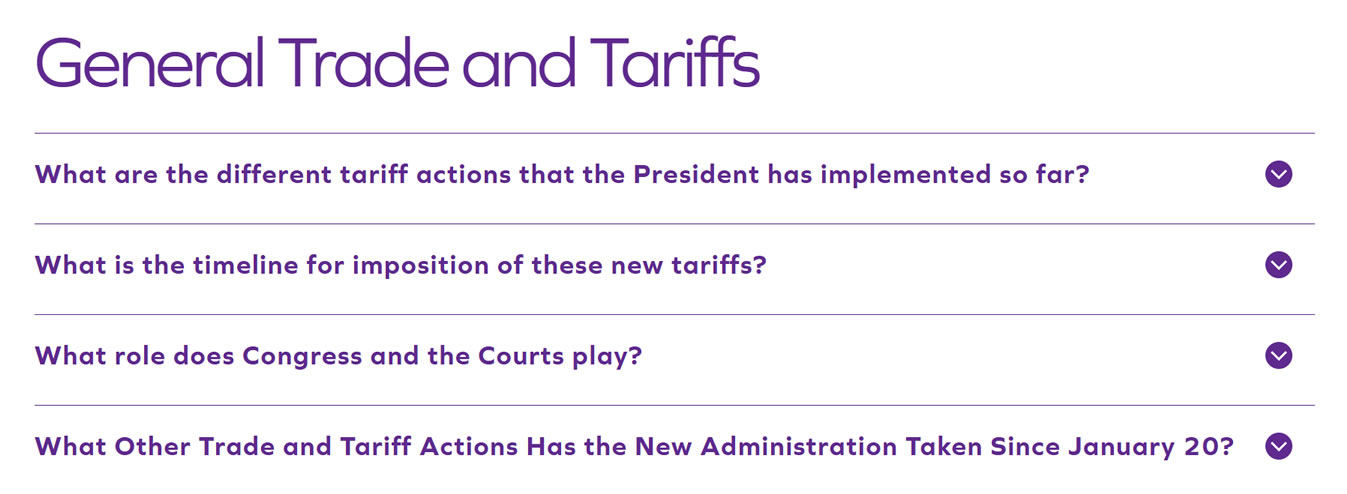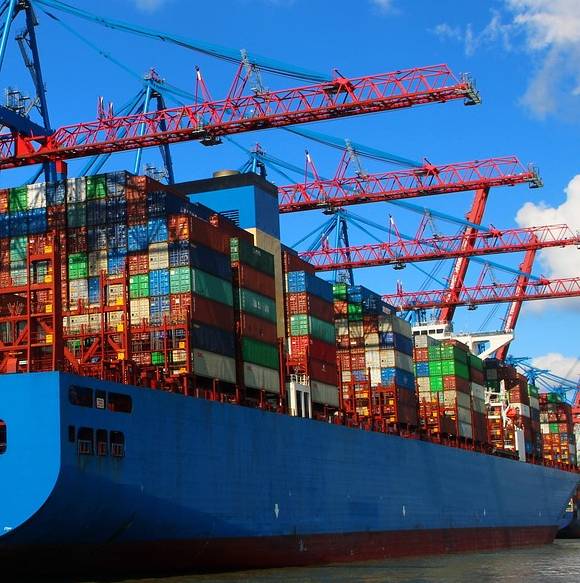RemA resources
International Trade and Market Access
The health and success of the recycled materials industry is dependent upon access to the global markets. Due in large part to ReMA members’ continuous innovation and increased efficiency, recyclers in the United States process more recycled material each year than can be consumed by domestic manufacturers. This is a fact across all recycled materials categories – including recycled steel (carbon and stainless), copper, aluminum, and paper. It is this success that allows recycled materials produced in the U.S. to be an essential raw material utilized in the manufacturing of new products worldwide, and integral to both the domestic and global manufacturing supply chains.
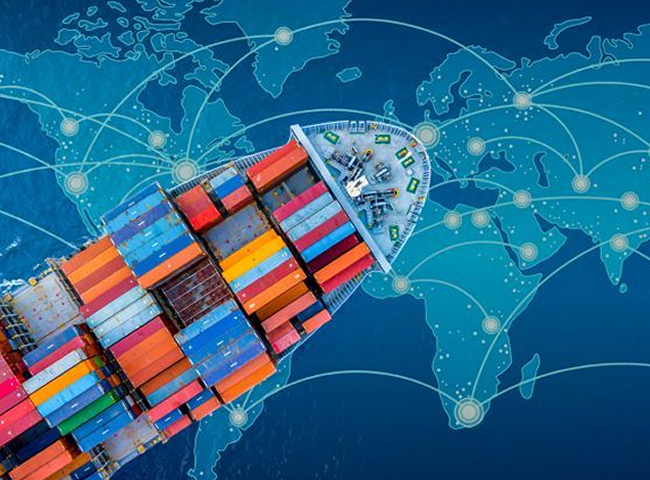
In any given year, approximately 70% of all recycled materials processed within the United States are consumed domestically through the domestic manufacturing supply chain, while the balance is exported into the global manufacturing supply chain, supplying industrial consumers in more than 100 countries around the globe.
Recycled Metals: Key Trends in Trade and Industry
Presented by ReMA President Robin Wiener for the 2025 CMRA Annual Convention
Global Market Demand for Recycled Materials
The U.S. recycled materials industry is part of a larger global industry, with more than $120 billion of recycled materials traded throughout the globe last year alone. Within the U.S., recyclers exported recycled materials valued at $28.1 billion last year from the United States to more than 100 countries around the world. The following table shows the largest markets for U.S. recycled material exports in 2024 by volume and dollar value, while the chart below it shows how the top markets change over time.
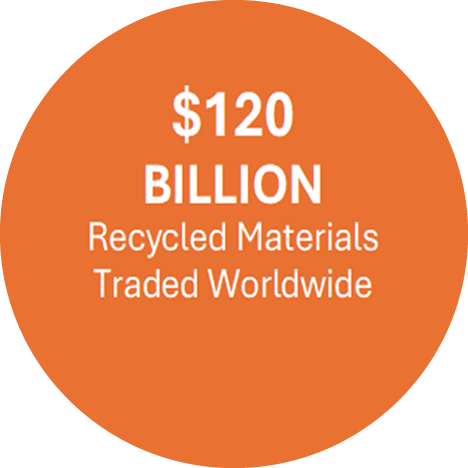
Benefits of U.S. Recycled Materials Exports
- Keeps the U.S. recycled materials industry strong and resilient and allows for recyclers to make greater domestic investments, benefitting the U.S. economy, workers and local communities.
- Allows the recycled materials industry to invest in facilities, equipment and technologies that help increased recycling to meet increasing levels of domestic demand.
- Without access to the global markets, many recycling operations would struggle, reducing investments in the recycling infrastructure, jobs, and the availability of recycled materials for domestic manufacturers. This would hurt – not help – domestic industrial consumers of recycled materials who rely on a strong and stable supply chain.
- Recycled materials exports help offset the U.S. trade deficit, contributing more than $20 billion over the last year alone!
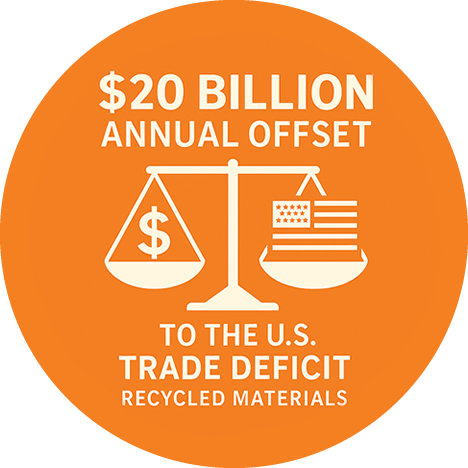
Trade: The Data
Key Markets
ReMA’s advocacy resources demonstrate how recycled materials are good for businesses and communities, and essential to economies and supply chains around the world. Explore our efforts on behalf of Recyclers.

Key Regulatory Issues
Imports into China
- New Import Standards for “Recycled Raw Materials” (translations provided by CMRA)
- CMRA Accreditation for “Recycled Raw Material” Exports
- Announcement of August 14, 2020
- Administrative Procedures
- Application
- Solid Waste and Environmental Pollution Prevention and Control Law of the People’s Republic of China
- ReMA does not have an English translation available, but we provide an information translation of the pertinent articles
- 2020 Scrap Import Quotas
U.S.-China Trade
Imports into Hong Kong
Imports into China
- New Import Standards for “Recycled Raw Materials” (translations provided by CMRA)
- CMRA Accreditation for “Recycled Raw Material” Exports
- Announcement of August 14, 2020
- Administrative Procedures
- Application
- Solid Waste and Environmental Pollution Prevention and Control Law of the People’s Republic of China
- ReMA does not have an English translation available, but we provide an information translation of the pertinent articles
- 2020 Scrap Import Quotas
U.S.-China Trade
Imports into Hong Kong

Indonesia Key Regulatory Issues
- Scrap Import Regulations
- Number 83 of 2020 Third Amendment to the Regulation of the Minister of Trade Number 84 of 2019 Concerning Non-Waste Import Provisions, issued on October 15, 2020
- Number 84 of 2019 Provisions on Import of Non-Hazardous and Toxic Waste as Industry Raw Material, issued on October 18, 2019
- Number 92 of 2019 Amendment to Regulation of the Minister of Trade Number 84 YEAR 2019 Regarding Provisions on the Import of Non-Hazardous and Toxic Waste as an Industrial Raw Material, issued on December 19, 2019
- Joint Decree on the Implementation of Imports of Non Hazardous and Toxic Waste as Industrial Raw Materials, issued on May 3, 2020 [Bahasa Indonesia] [Unofficial English translation]
- Exporter Registration
Malaysia Key Regulatory Issues
All companies that ship plastic scrap to Malaysia – which must be in compliance with the Basel Convention – must provide to their Malaysian customers a copy of an export accreditation issued by the supplier’s home country.For companies based in the United States, the U.S. Government does not issue such accreditation letters, but the Malaysian Government will accept an accreditation letters from ISRI, which are issued to members only.

Key Regulatory Issues
- India’s 2021 budget lowers ferrous scrap import tariffs to 0% and lowers copper scrap import tariffs from 5% to 2.5%.
- India permits post-industrial and/or pre-consumer polyethylene to be imported into Export-Oriented Units and Special Economic Zones.
- Pre-Shipment Inspection Agencies (PSIAs): The Directorate General of Foreign Trade announced on June 30, 2020, that the current list of approved PSIAs has been extended to September 30, 2020.

Key Regulatory Issues
- U.S. Mexico Canada Agreement (USMCA)
Resources & Documents
Additional International Resources
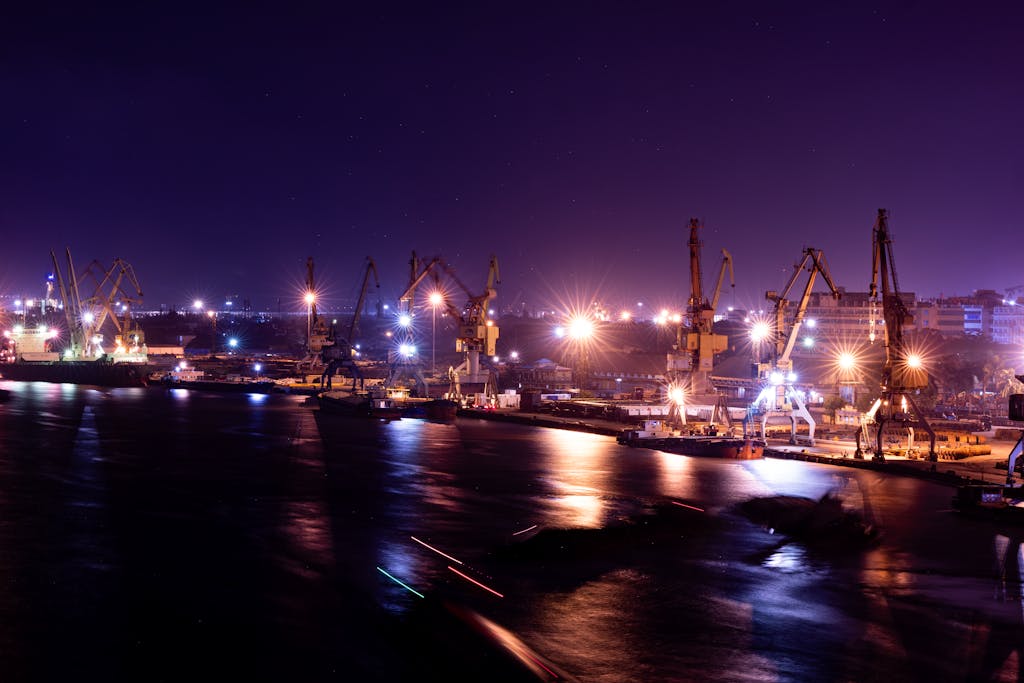
Trade Compliance
ReMA is a staunch advocate for responsible recycling, regulatory enforcement and improving the quality of materials in compliance with our internationally-recognized Specifications. Trade contributes to the well-being of the planet and provides a vital lifeline for communities around the world to take part in the growing demand for recycled materials, and compliance begins here at home.
Trade Compliance
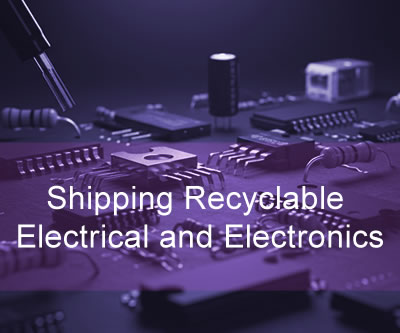
Shipping Recyclable Electrical and Electronics
Basel Convention E-Amendments Set to Enter into Force on January 1, 2025
Read Post
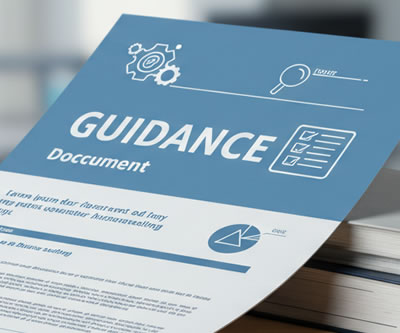
Tariff Guidance Document
A dedicated Q&A resource for ReMA members, providing insights and analysis on trade and tariff policies.
